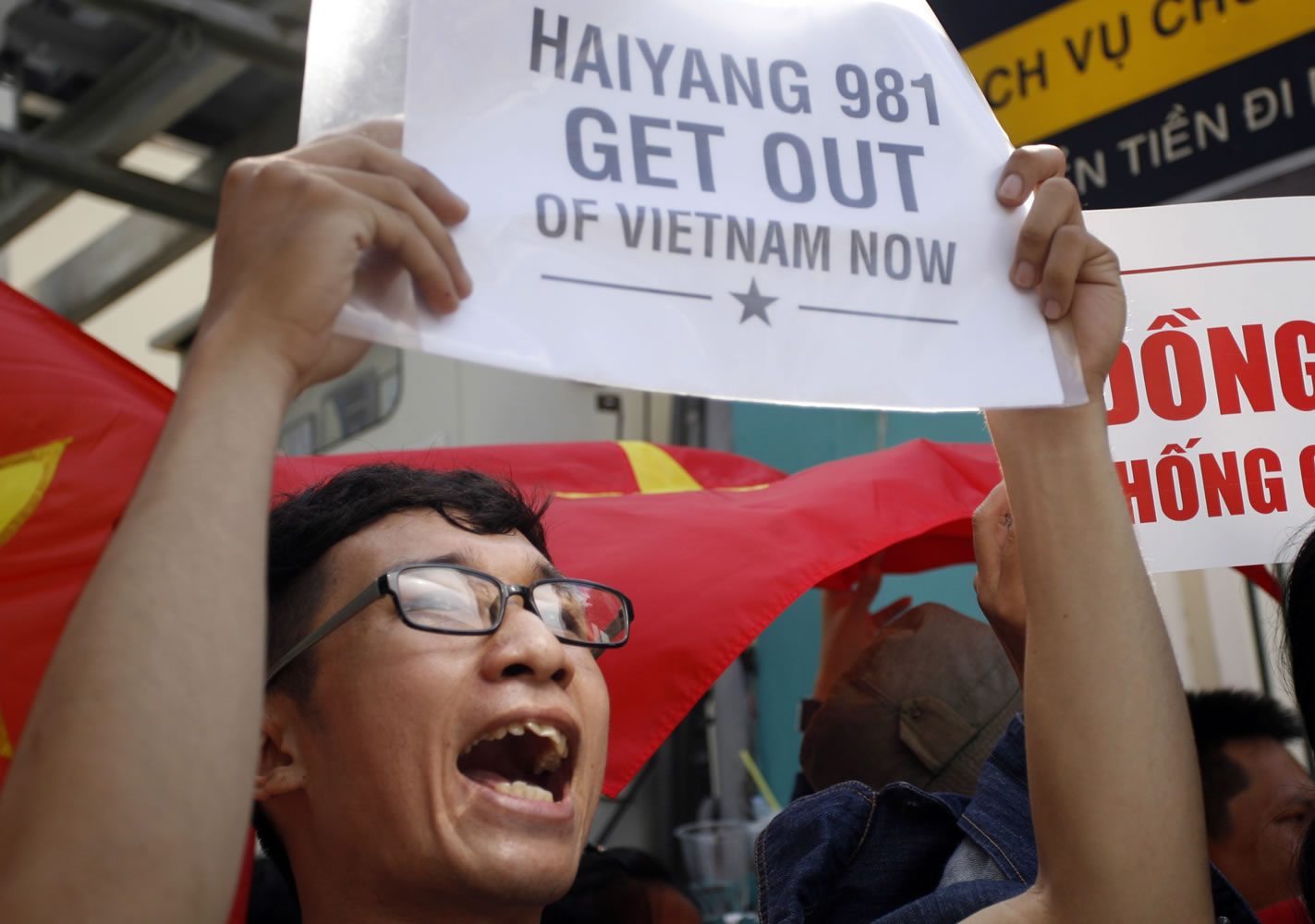HANOI, Vietnam — Vietnamese anger toward China is running at its highest level in years after Beijing deployed an oil rig in disputed waters. That’s posing a tricky question for Vietnam’s leaders: To what extent should they allow public protests that could morph into those against their own authoritarian rule?
At one level, the ruling Communist Party would like to harness the anger on the street to amplify its own indignation against China and garner international sympathy as naval ships from both countries engage in a tense standoff near the rig off the Paracel Islands in the South China Sea.
But Vietnam’s government instinctively distrusts public gatherings of any sort, much less ones that risk posing a threat to public order. And they also know that members of the country’s dissident movement are firmly embedded inside the anti-China one, and have used the issue to mobilize support in the past.
On Saturday, around 100 people protested outside the Chinese Consulate in the country’s commercial capital, Ho Chi Minh City, watched on by a large contingent of security officers. Dissident groups have called for larger demonstrations today in Ho Chi Minh City and in Hanoi, the capital.



